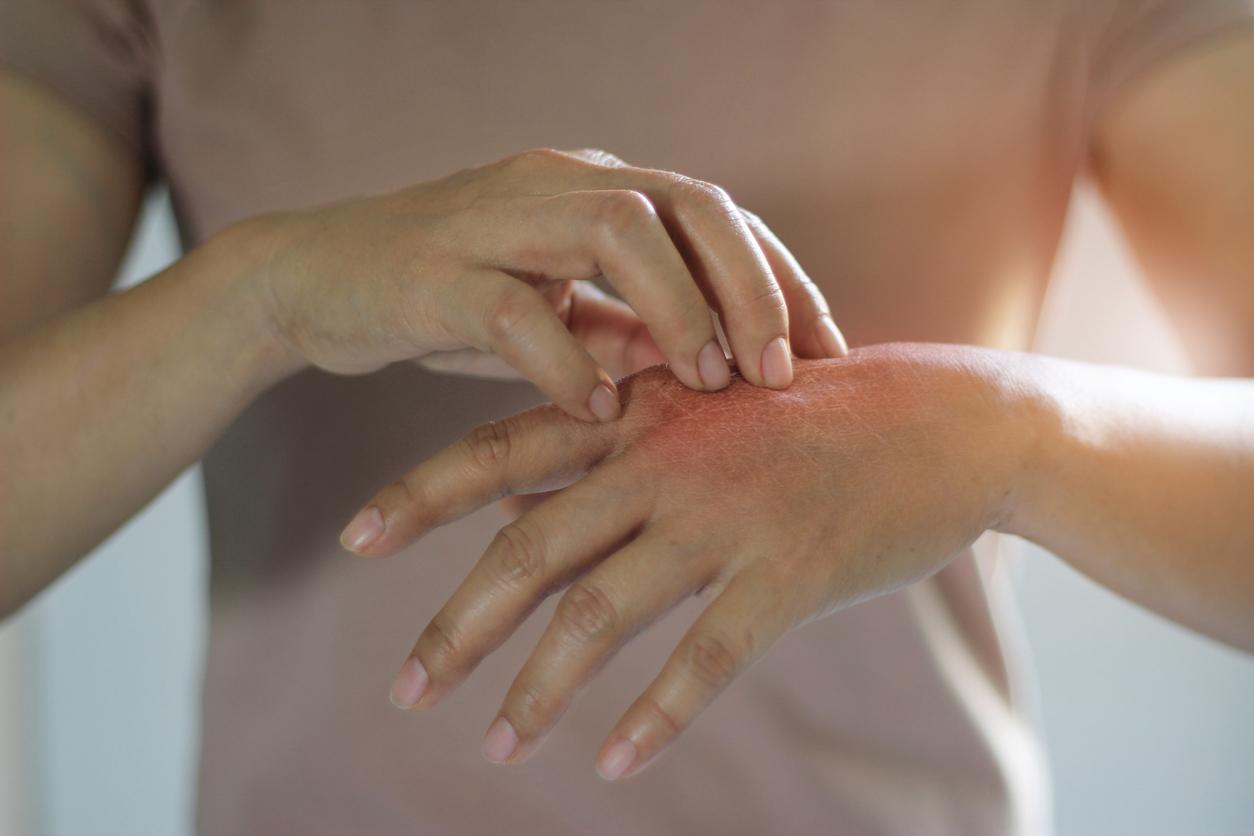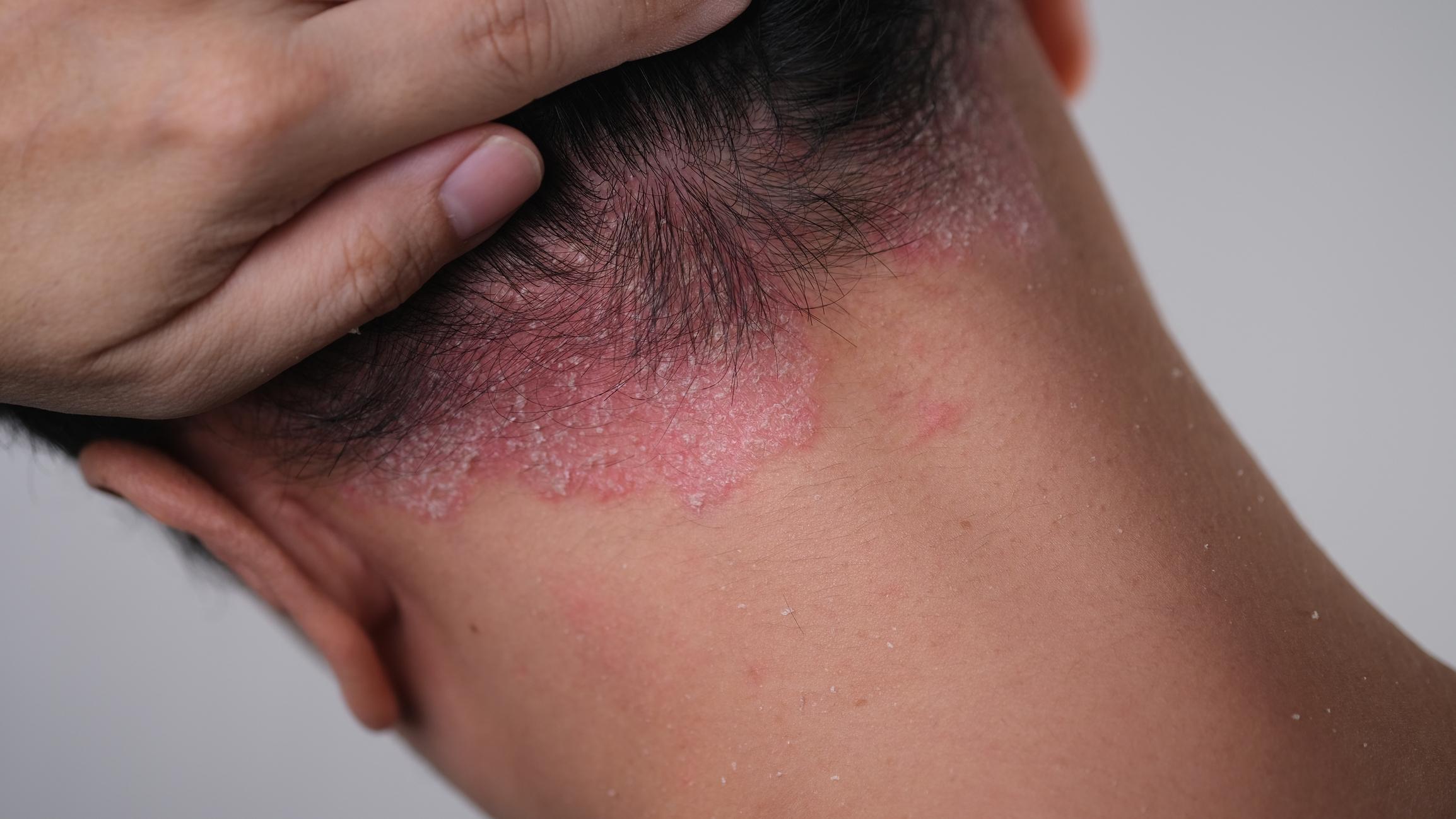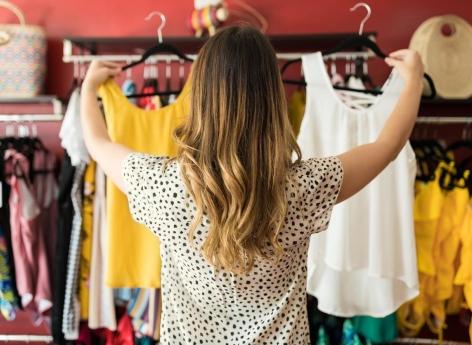In a new study, American researchers have found that two lipids could trigger an increase in body temperature and pain in patients with psoriasis.
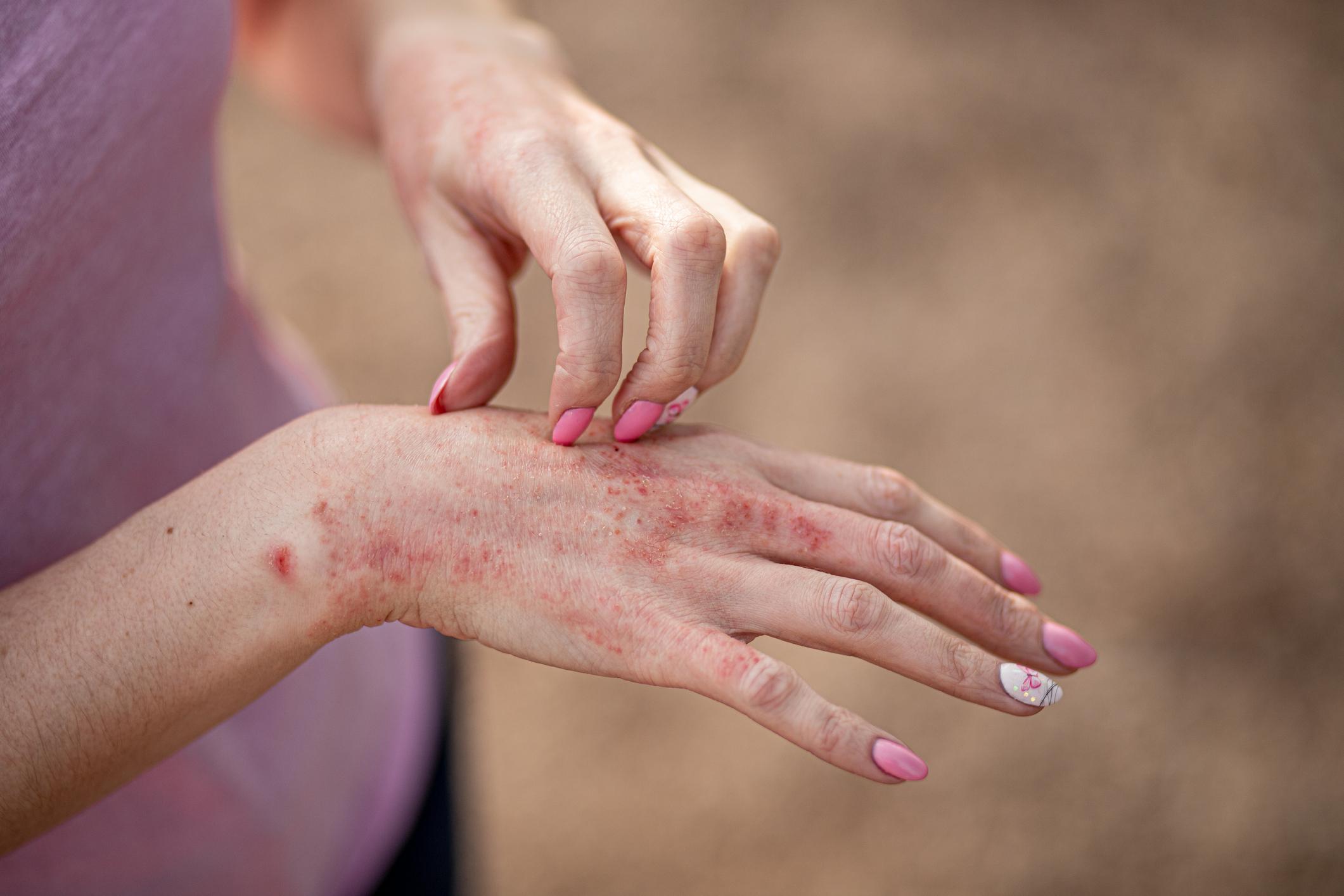
- About 2% of the population is affected by psoriasis, according to Inserm.
- Psoriasis is a disease that progresses through flare-ups of varying intensity, interspersed with periods of calm.
Psoriasis is characterized by red patches with scales. This chronic inflammatory skin disease is generally benign, but serious forms are sometimes distinguished, associated with generalized involvement and/or joint pain. For the time being, there is no cure for this disease, but treatments can alleviate the symptoms and improve the quality of life of patients. A proper diet also helps reduce inflammation.
Lipids would increase the sensitivity of pain associated with psoriasis
Lipids are fats found in food. They are made up of substances called fatty acids. Linoleic acid is found in vegetable oils, nuts and seeds. Linoleic acid metabolites are formed when the body breaks down this fatty acid during digestion. These compounds may contribute to increased body temperature and pain sensitivity linked to psoriatic lesions, according to a recent study from North Carolina State University (NCSU).
To reach this conclusion, the scientists used mass spectrometry, an analytical technique that allows the determination of molecular masses, their identification and their quantification, to create skin lipid profiles from psoriatic lesions.
In the study published in the journal JID Innovations, they looked at two types of lipids derived from linoleic acid: 9,13-EHL and 9,10,13-THL. When these lipids bind to the neuronal receptor, they activate neurons expressing TRPA1 and TRPV1 receptors that are involved in temperature and pain hypersensitivity. A phenomenon that triggers an increase in body temperature and pain in patients with psoriasis.
Psoriasis: hope for future therapies
However, scientists have found that these lipids do not cause any itchiness. “It was surprising that these lipids could create hypersensitivity but had no impact on the itching sensation, which is usually the most bothersome symptom associated with psoriasis (…) This is most likely related to the way the neuron is activated , a mechanism that we have not yet discovered”said Santosh Mishra, corresponding author of the study and associate professor of neuroscience at North Carolina State University.
Those responsible for the study will continue their research. “We know that these lipids change from one form to another, but we don’t yet know what causes this (…) We also know which protein the lipids bind to, but not where the binding occurs. The answer to these questions could hopefully lead to new therapies – or dietary solutions – for some people with psoriasis,” said the researcher.










